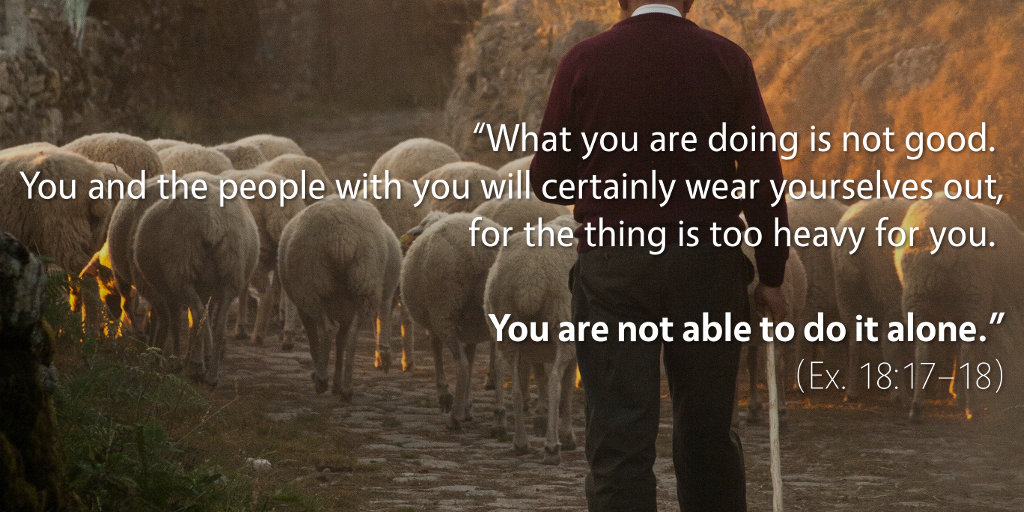Bible Readings for March 7th
Exodus 18 | Luke 21 | Job 36 | 2 Corinthians 6
We know almost nothing of Jethro’s faith until we come to Exodus 18, when Moses tells Jethro all that Yahweh had done to redeem Israel from Egypt (Ex. 18:8). We read that, in response to the news, Jethro rejoiced at what Yahweh had done for Israel (Ex. 18:9–10), and then he said this: “Now I know that the LORD is greater than all gods, because in this affair they dealt arrogantly with the people” (Ex. 18:11). From there, Jethro brought sacrifices to God and ate with Moses, Aaron, and the elders of Israel (Ex. 18:12).
It seems that Jethro had been a skeptic up until this point. He must have respected Yahweh to some degree, but he probably imagined that Yahweh was simply one god among many gods. So, while he was willing to let Moses take his daughter to Egypt in obedience to Yahweh, Jethro probably didn’t have high hopes for Yahweh’s power in the face of the mighty Egyptian gods.
But now Jethro knows that Yahweh is greater than all gods. We had read that a “mixed multitude” (Ex. 12:38) went up with Israel out of Egypt, suggesting that several Egyptians had come to faith in the God of Israel, and in Jethro we see another convert who is delighted to learn about the power and strength of Yahweh in the face of all other gods. In response, he worships Yahweh along with Israel (Ex. 18:12).
Jethro also brings Moses an important piece of wisdom. As he sees his son-in-law spending all his time judging disputes between the people of Israel, he says, “What you are doing is not good. You and the people with you will certainly wear yourselves out, for the thing is too heavy for you. You are not able to do it alone” (Ex. 18:17–18).
Then, Jethro lays out a plan for organizing Israel’s judicial system. He proposes that Moses find competent, trustworthy, righteous men and place those men as leaders of thousands, over hundreds, over fifties, and over tens. The disputes would come to the chiefs over tens, and if the case was too difficult, to the chiefs over fifties and on up, so that Moses would only hear the most difficult cases. When Moses implements the plan, his workload is substantially reduced.
Just as we saw yesterday, God is beginning to transition the leadership over Israel from resting in the hands of Moses alone to resting in the hands of multiple godly men who can help Moses bear the load of shepherding God’s people. And even Jesus focused his earthly ministry on training and developing a plurality of apostles who would lead the church after his ascension into glory.
Ultimately, the principle of plural leadership teaches us that Jesus has given his church multiple leaders as gifts for building up the body of Christ (Eph. 4:7–16).
Podcast: Play in new window | Download (4.9MB) | Embed
Subscribe: Apple Podcasts | RSS | More

Scripture quotations are from The Holy Bible, English Standard Version copyright © 2001 by Crossway Bibles, a division of Good News Publishers. Used by permission. All rights reserved.


